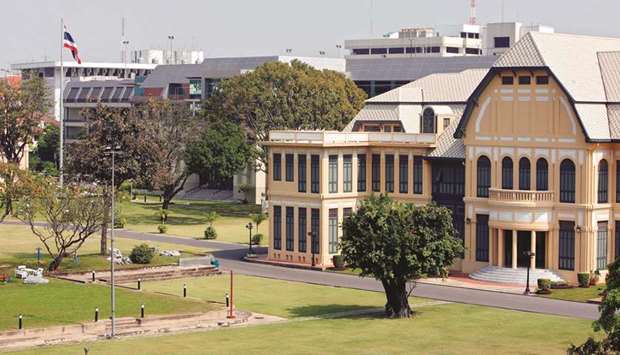Thailand’s central bank took steps on Friday to curb short-term inflows and restrict the currency’s gains, concerned about the effect a stronger baht is having on the economy.
The Bank of Thailand will reduce the limit on outstanding non-resident baht accounts to 200mn baht ($6.5mn) from 300mn baht effective July 22, it said in a statement.
To boost surveillance of non-residents, the actual owners of debt securities issued in the country must be reported starting the July reporting period, it said. “The BoT will continue to closely monitor the Thai baht movements as well as non-resident behaviours, and stand ready to use additional measures if undesirable speculative behaviours persist,” Vachira Arromdee, assistant governor for Financial Markets Operations Group, said in a statement.
The baht fell almost 1% against the dollar following the announcement, paring its 2019 gains to about 5%.
The currency, which is still Asia’s best-performing currency for the year, was down 0.9% to 30.898 per dollar on Friday in Bangkok.
“The latest measures aren’t really effective in the long run,” said Jitipol Puksamatanan, Krung Thai Bank’s chief strategist in Bangkok. “The BoT used to do this in 2017, but it can’t stop the baht from appreciating further. The amount of restriction is smaller and smaller, and suggest that there is no room for this kind of capital control policy.”
A signal for an interest-rate cut may do more to stem the currency’s gains, Jitipol said.
The central bank has kept interest rates unchanged this year after hiking in in December, with Ggvernor Veerathai Santiprabhob saying it would be ready to adjust its policy rate should risks rise.
“BoT doesn’t expect the measure being issued today to have an immediate impact,” assistant governor Chantavarn Sucharitakul told reporters. “It’s a preventive measure to mitigate the impact from inflows of short-term funds in the future.”
The central bank flagged the possible currency measures in minutes of its latest monetary policy committee meeting, published earlier this week. It’s become increasingly worried about the negative effects of the baht on the export-reliant economy.
The Bank of Thailand last month lowered its growth projection for 2019 to 3.3% from 3.8% and forecast zero expansion in exports.

Bank of Thailand headquarters buildings in Bangkok.
